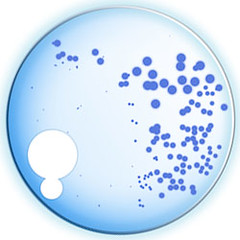As we are all aware, there is a serious problem in retention and career progression for women in science – leading to the current situation where only 15% of Imperial professorial staff are female. This “leaky pipeline” of female staff represents an enormous loss of talent and creativity and there is a strong business case for the College to take effective measures to retain and support the best talent, of whatever gender.
One of the main time-periods where female researchers are lost to academia is when they start a family. This often happens during the postdoctoral period or first academic post for pure scientists, and during the PhD period for medically-qualified staff. These are key career transition points for women and support at this time is critical for retention and progression.
In order to try to address this particular part of the “leaky pipeline” and to ensure that expectant mothers and new parents are provided with the optimal conditions in which to flourish, the College is exploring how to provide better support to staff members at this time.
Her own recent experience of returning to work after maternity leave, led Su Nandy (Deputy Head of Faculty Operations, Engineering) to start thinking about what could be done to support staff members who are expecting, or new parents. In October 2012, Su devised a questionnaire to explore this and invited all staff members who had taken maternity leave in the previous four years and were still employed in the College to take part. An article was published in BMJ Careers, “Supporting mothers to become clinician scientists” by Victoria Salem (Clinical Research Fellow, Department of Medicine), Su Nandy, Stephen Bloom.
At a meeting today (21 March 2013), Su presented the results of her work. The first surprise was that of the 553 women who had taken maternity leave between July 2008 and July 2012, nearly 60% had since left the College. Currently, exit data is not collected in a way that allows analysis of the factors operating here (how many were had been on fixed-term contracts, for example), highlighting the need to collect data in this area.
There was a magnificent response to Su’s survey – of the 226 eligible staff, 192 (85%) responded. Of these, 78% described experiencing difficulties in balancing work and home responsibilities, 70% reported exhaustion and 50% were suffering from sleep deprivation. These data might be useful in training line managers dealing with new parents.
Recommended measures:
As a result of the detailed responses to the survey (Maternity Survey Presentation), Su has proposed 10 measures the College could take to support expectant women and new parents:
1. Staff education
- Pre/Post maternity leave courses dealing with transition
- Paternity courses to support new fathers
- Line management/academic supervisor guidance/ training
2. Support through visible/approachable female role models
- Maternity buddy scheme set up last year- recommendation to extend to include pre-maternity leave. 42% requested this
- Mentoring/career coaching programmes to be offered more proactively on return from maternity leave. 31% requested this
3. Widely publicised designated room for expressing milk/place for pregnant staff members to rest in each campus
4. Provision of a dedicated parents webpage/ forum
5. Baby changing facilities in each large building across all College campuses and sign posted/ publicised.
6. Increase maternity pay to match or better other Russell Group universities.
7. Provision of affordable childcare with flexible / longer nursery hours to encompass the scientific working day (8am-6pm)
8. One – off emergency child care provisions for parents to access.
9. Dedicated member of HR/Equalities to cover maternity/family friendly/gender issues.
10. College to sponsor further study in relation to women taking maternity leave who are funded on research grants
These recommendations were presented and discussion was invited from the audience. The proposals were warmly welcomed and we were pleased to hear that full consideration was being given to them by the College’s Management Board. Some of the proposals are relatively easy to implement and cost-free or very inexpensive, while others may require more resource or planning. We look forward to hearing the Management Boards views.
A number of additional issues were raised including nursery hours, eligibility employment periods for both maternity and paternity leave and the excellent Elsie Widdowson Scheme, which provides funding for replacement teaching, admin, research staff or consumables to support women returning from maternity leave. The money is provided centrally by HR, so Departments and individuals can only gain from the scheme.
At the moment Elsie Widdowson funding is being offered to all eligible staff, so if you are pregnant or just back from maternity leave, don’t lose out!
It is really commendable that Su and the College senior HR team are engaged in this initiative and that there are plans to build on the information gained – the maternity survey will be repeated in 3 years time to see whether there have been any improvements and a paternity survey is planned for later this year. The HR team would welcome any ideas, comments or suggestions that you might have on these issues. If you would like to contribute to the discussion please contact: Su Nandy – Ext 41628 s.nandy@imperial.ac.uk
Dr Alexandra Blakemore
Faculty of Medicine Ambassador for Women


















 As the faculty’s REF coordinator I support the faculty’s preparations for the upcoming REF submission. Amongst other things, I lead on data collection, analysis and scenario modelling. I will support the faculty’s REF committee and ultimately manage the processes required to make a successful submission that reflects the strengths and capabilities of the faculty.
As the faculty’s REF coordinator I support the faculty’s preparations for the upcoming REF submission. Amongst other things, I lead on data collection, analysis and scenario modelling. I will support the faculty’s REF committee and ultimately manage the processes required to make a successful submission that reflects the strengths and capabilities of the faculty. Alexandra Williams
Alexandra Williams
